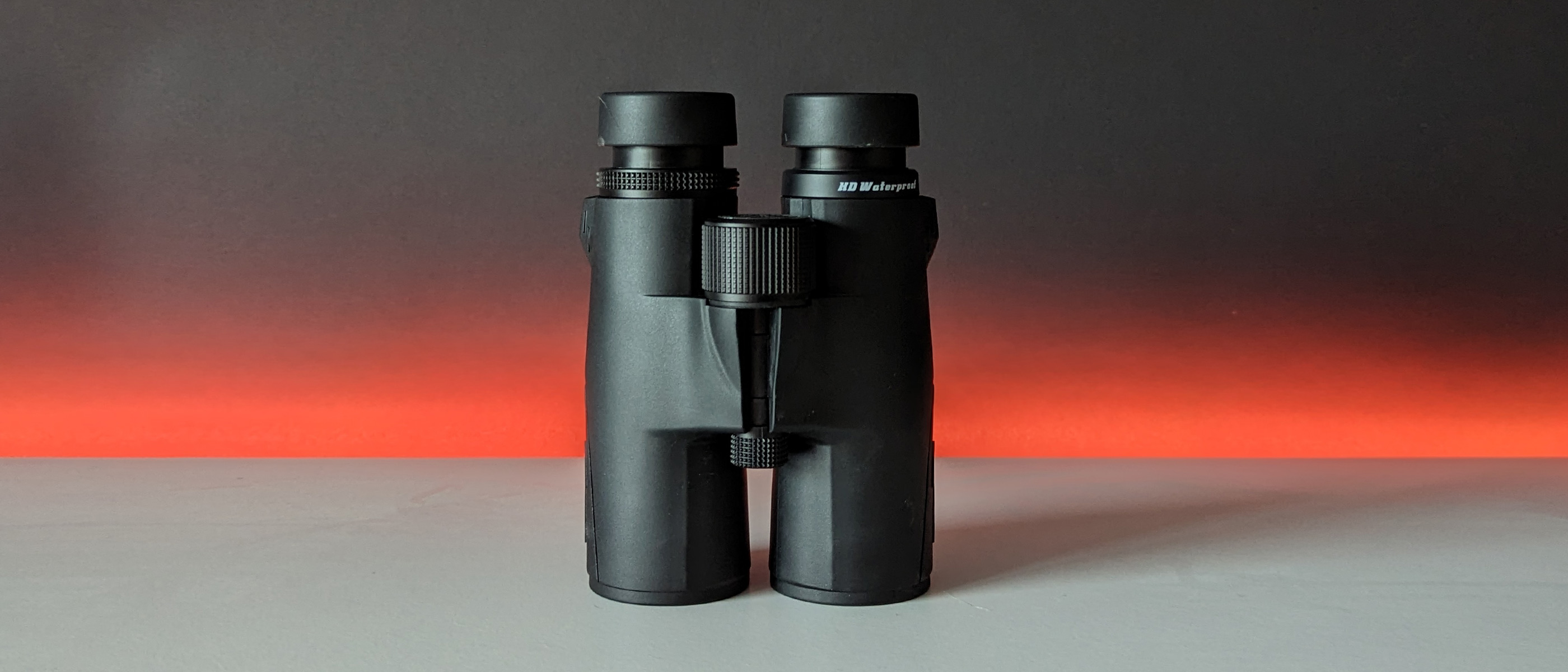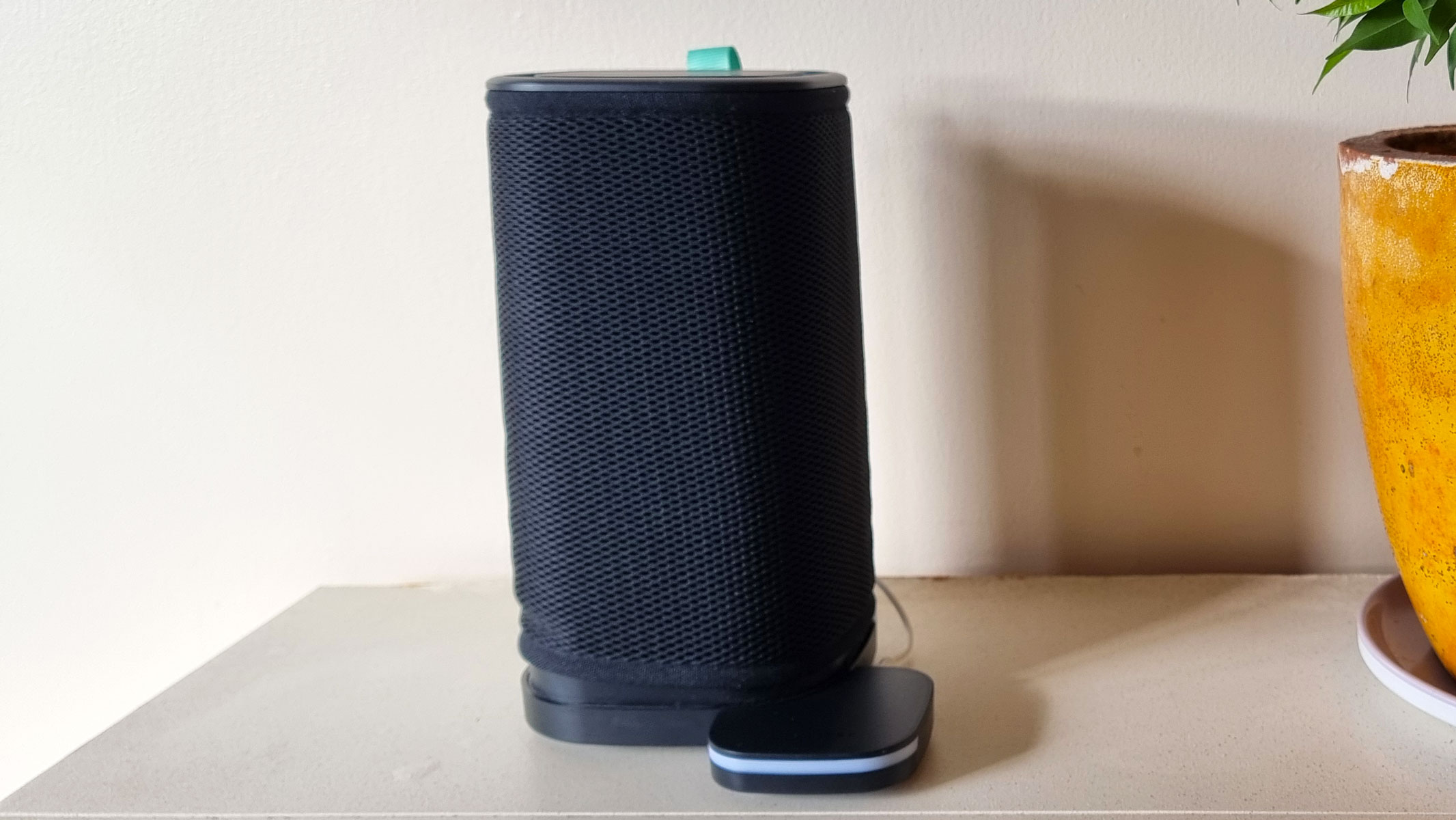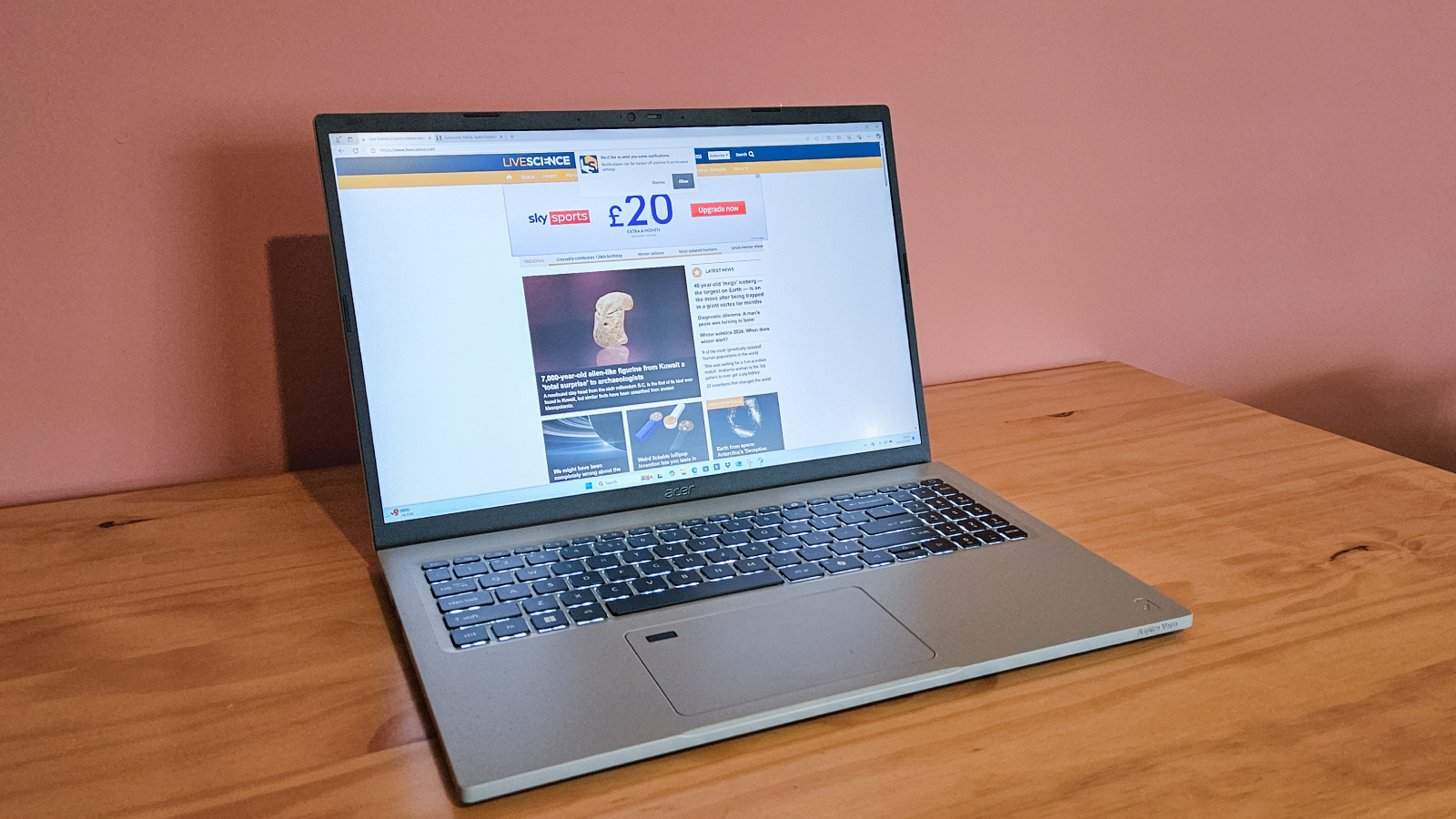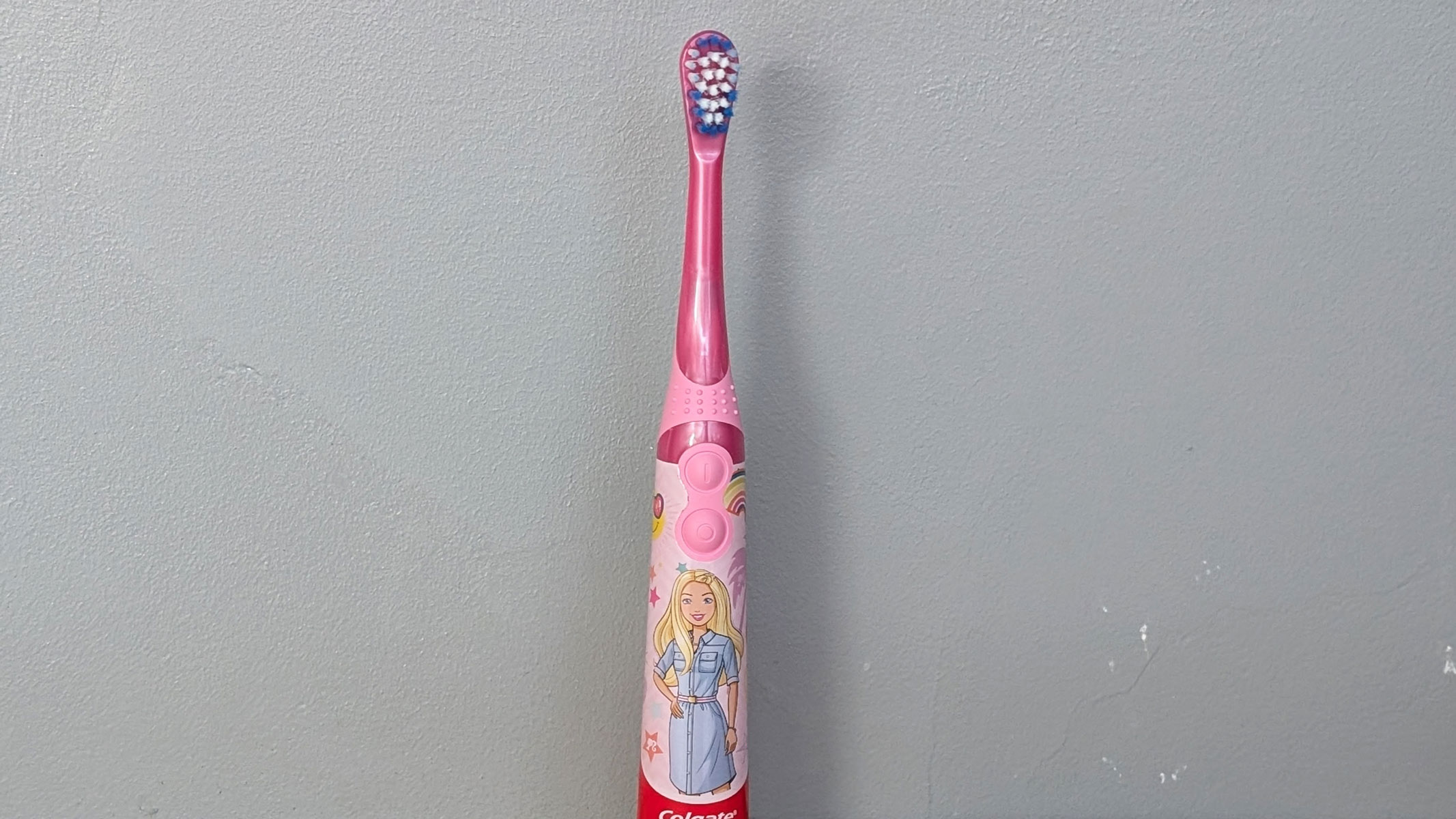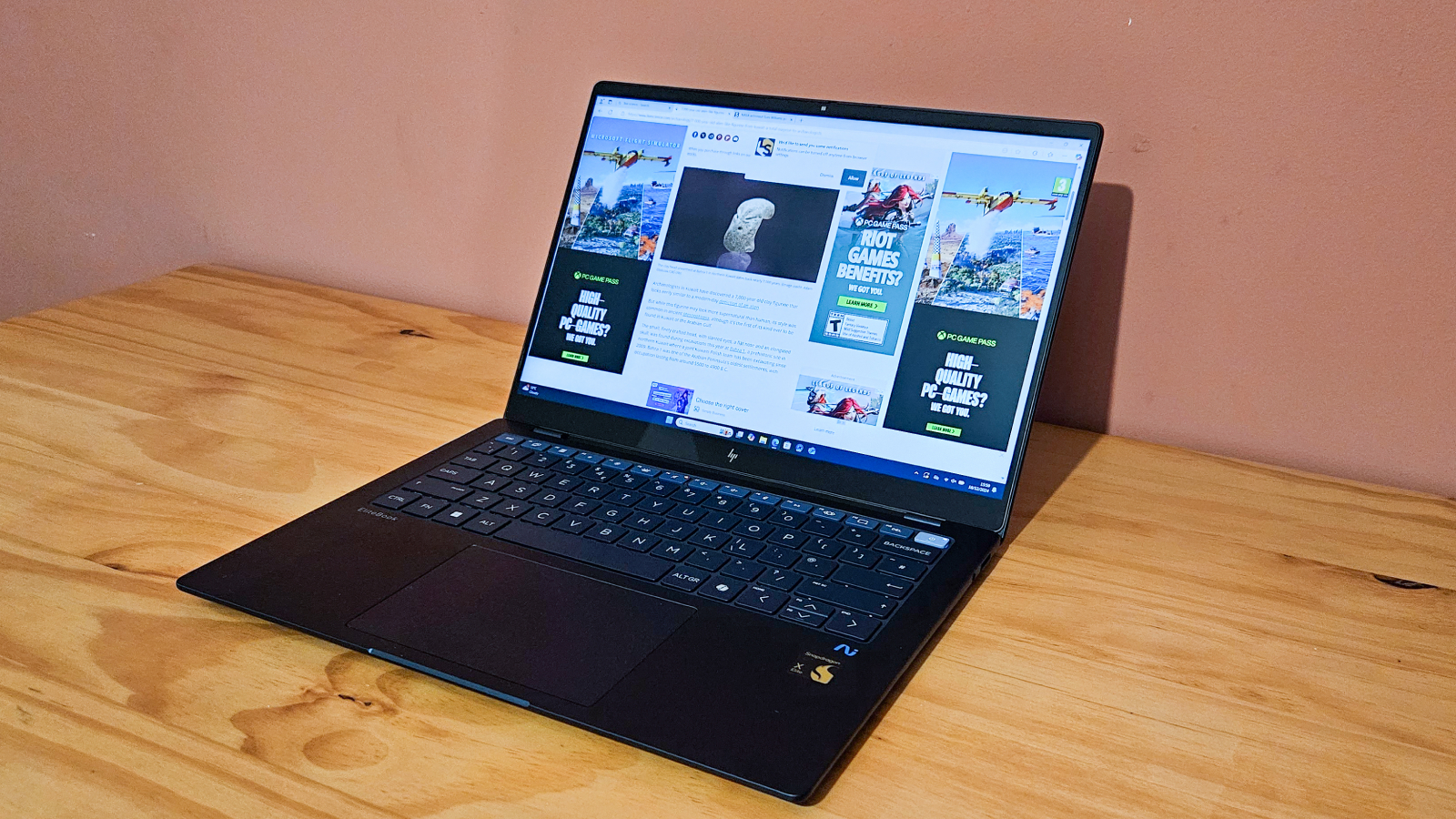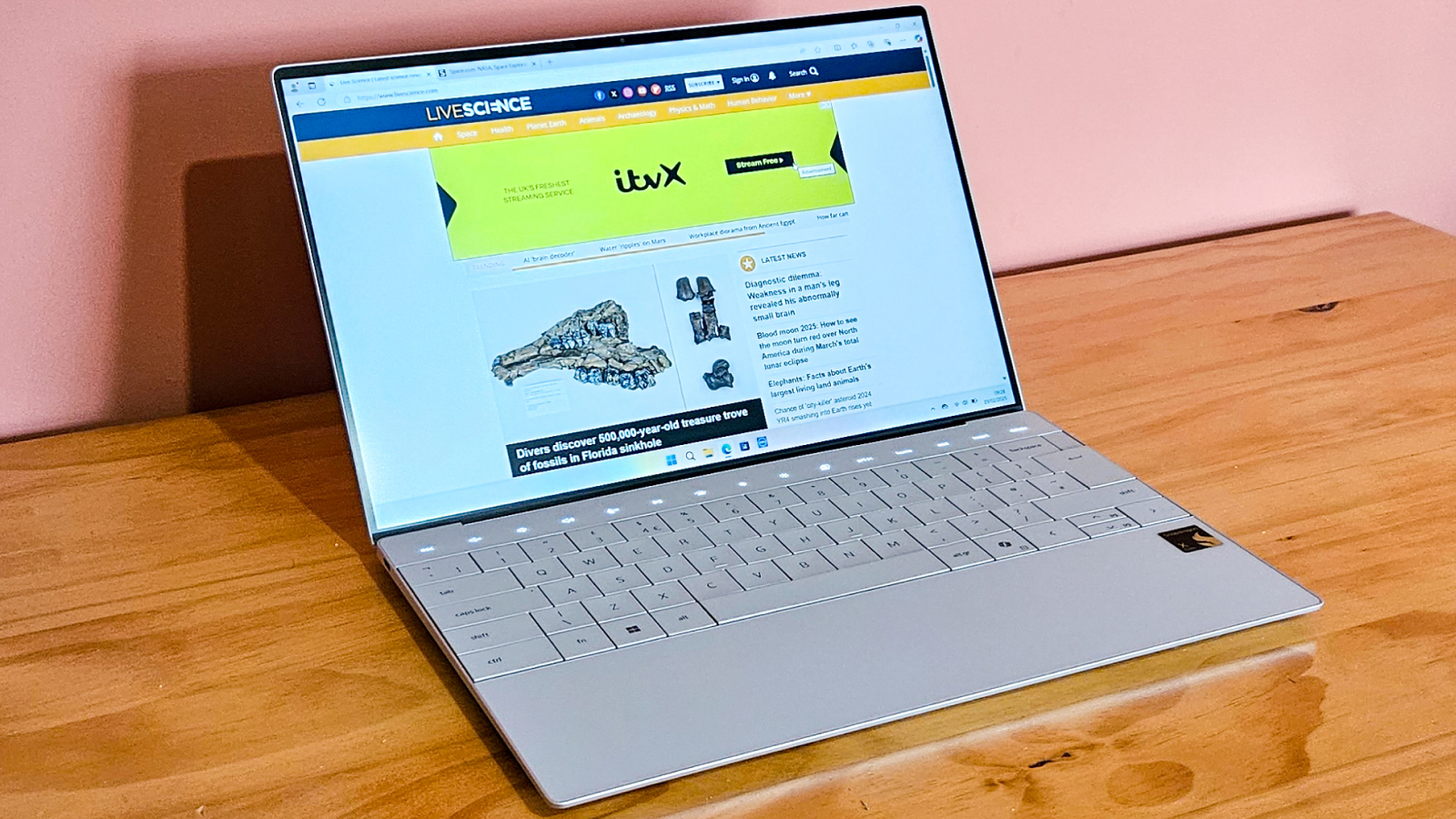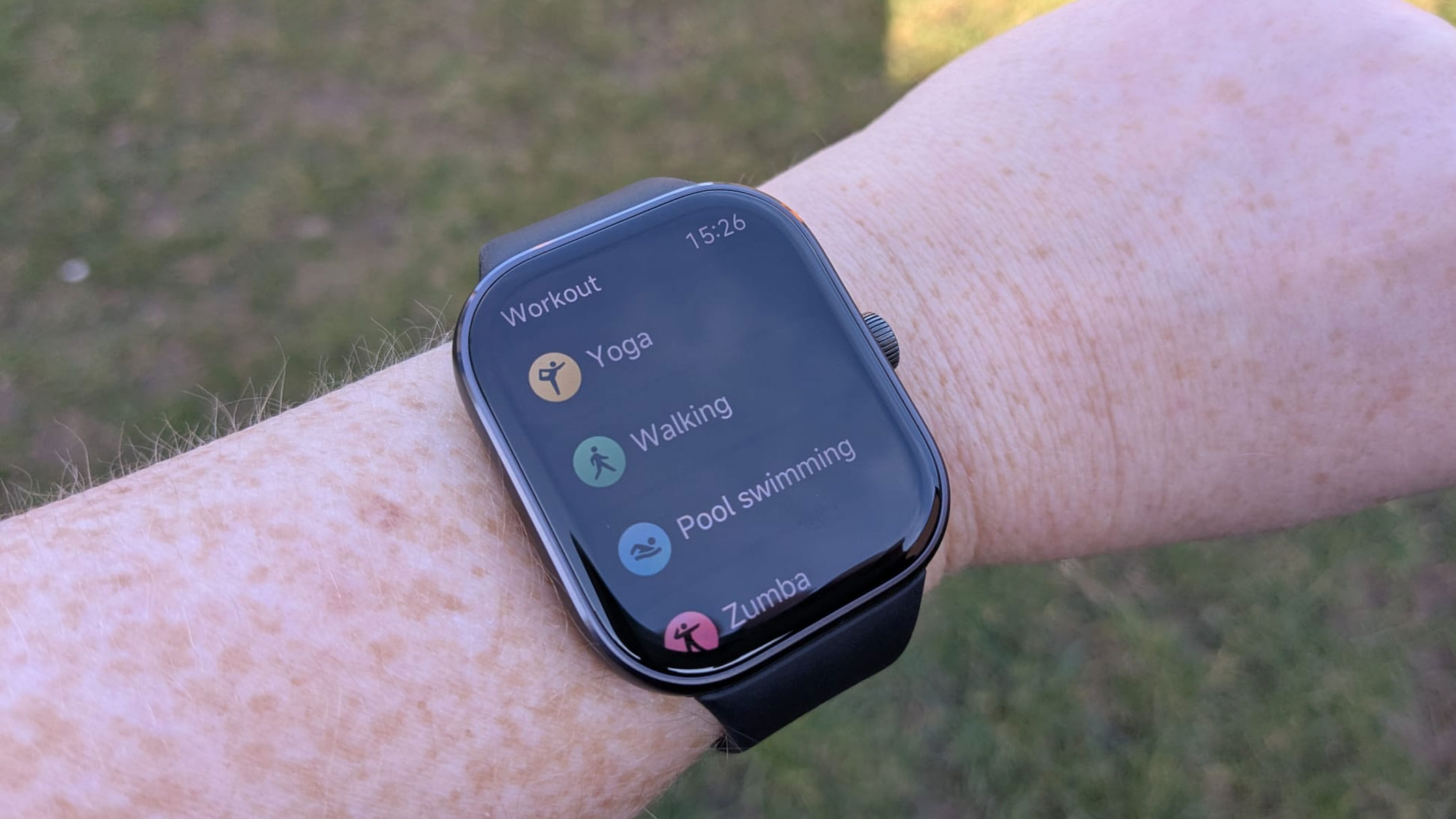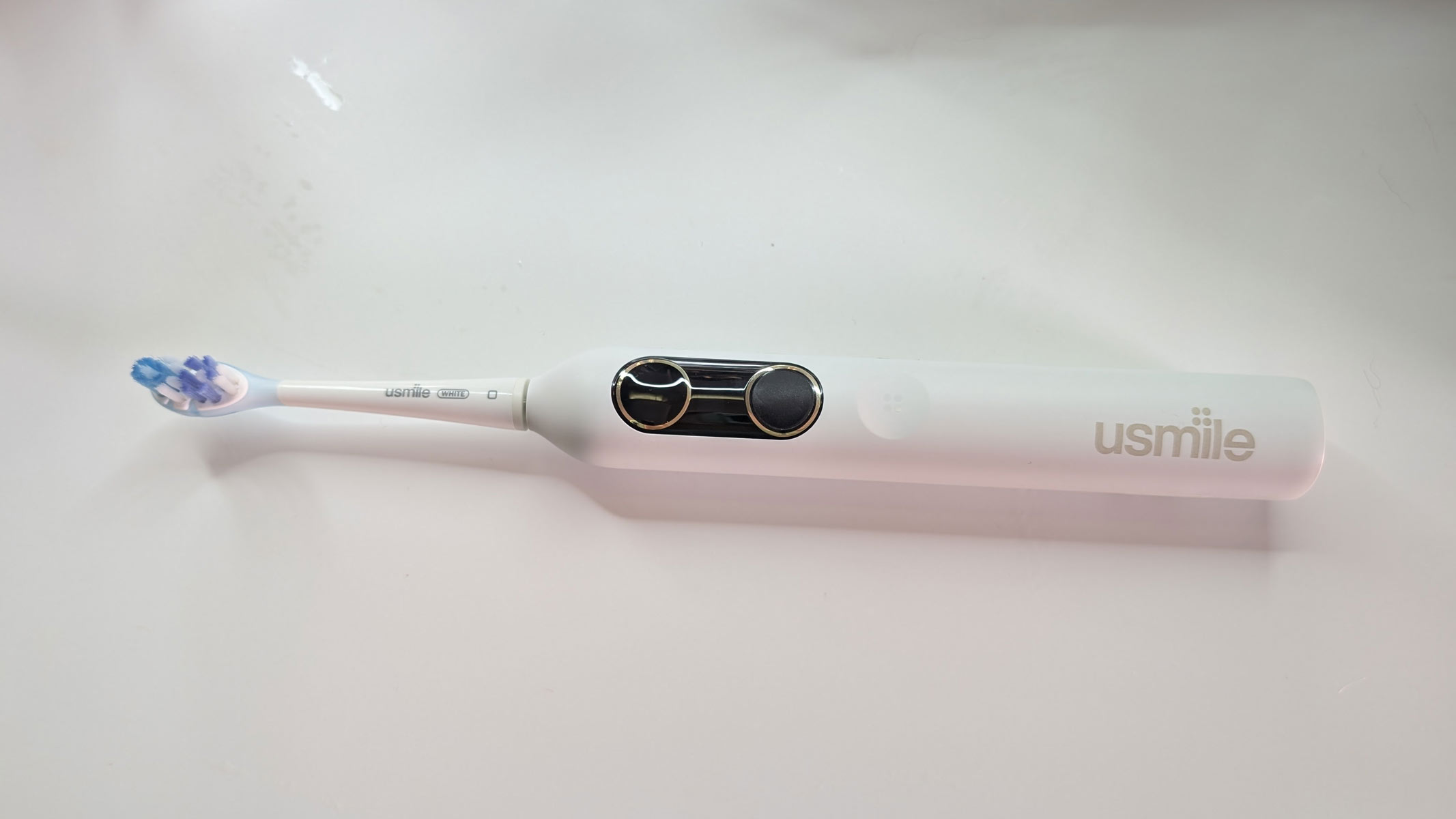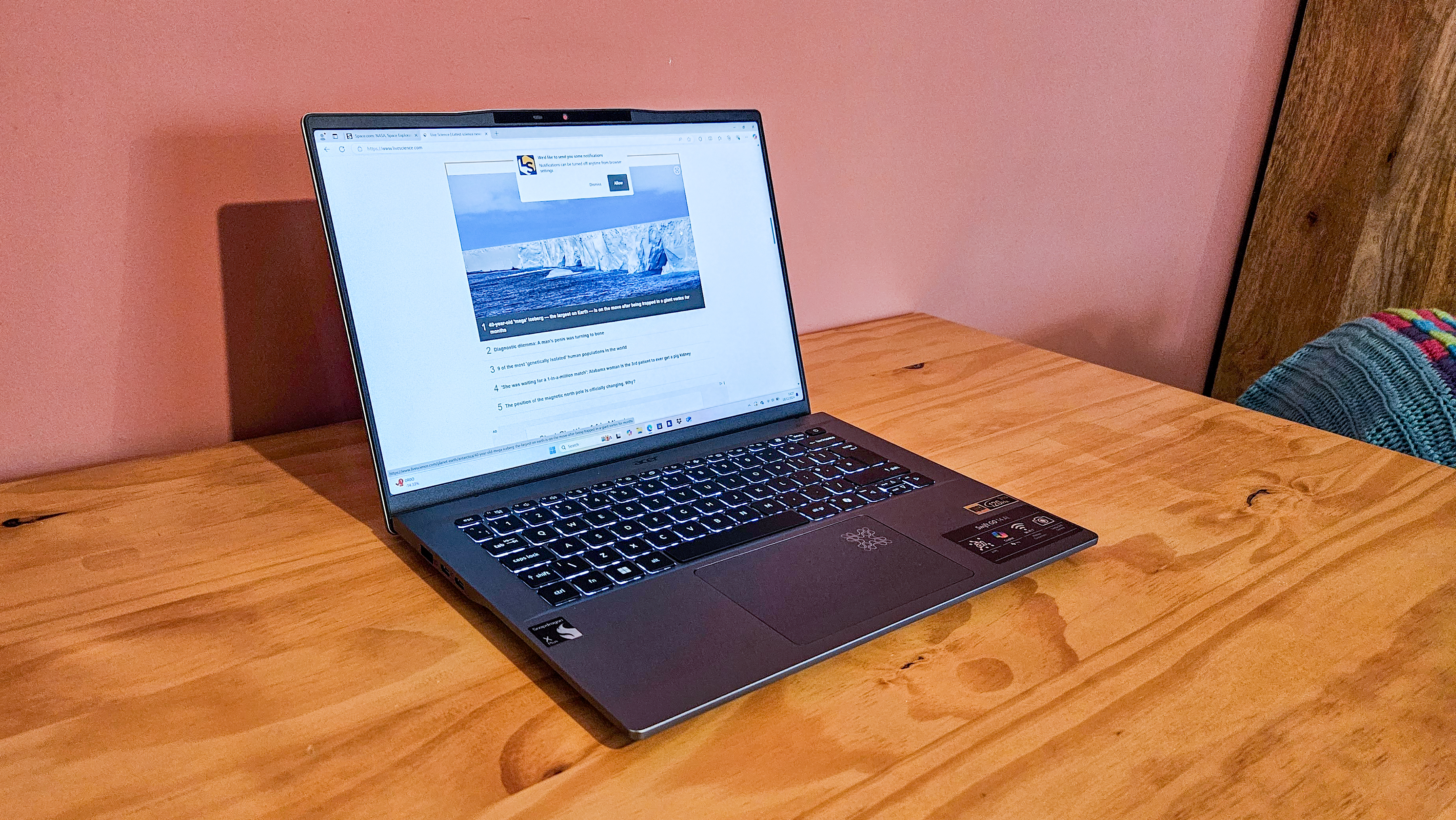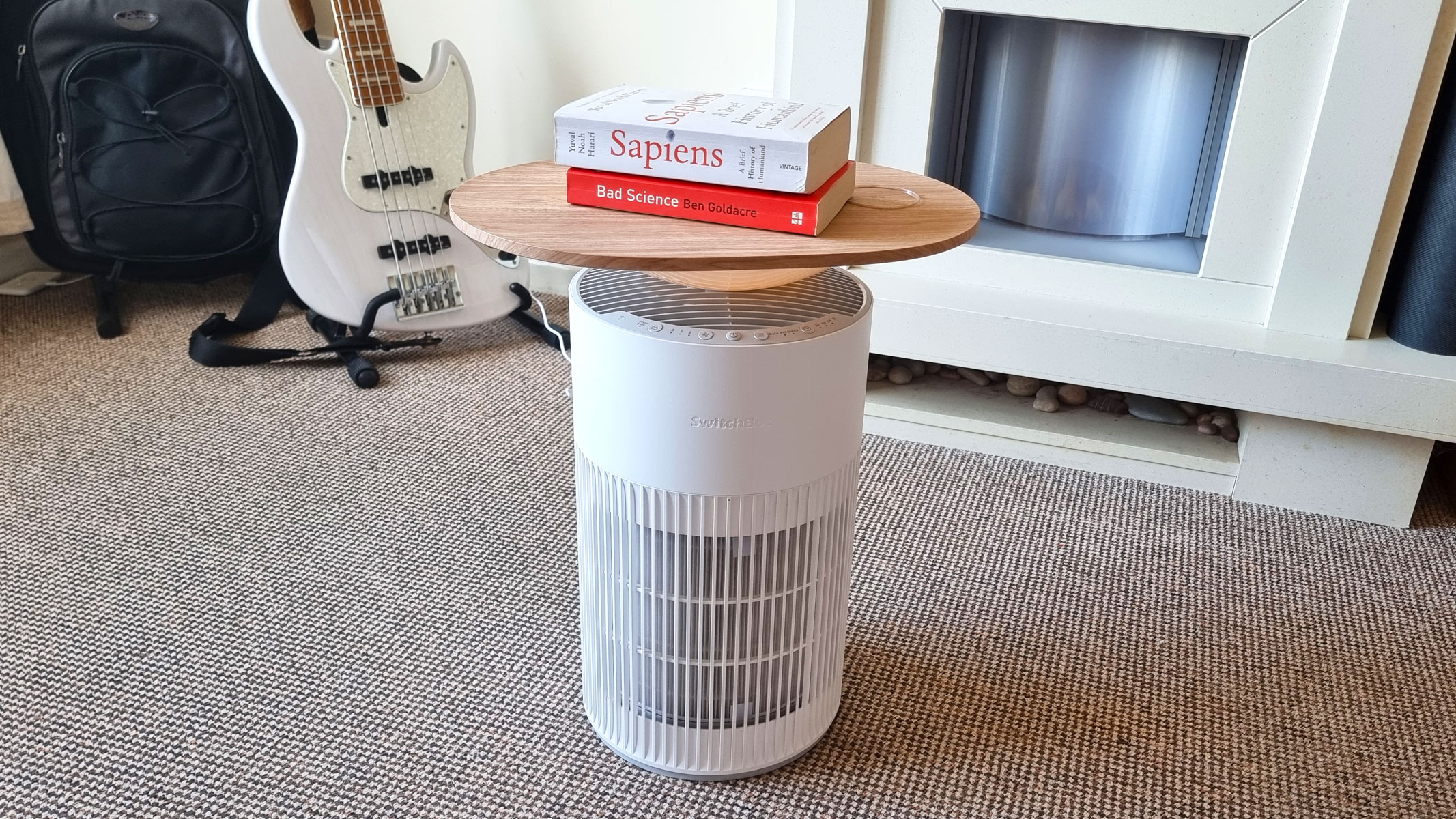Live Science Verdict
A good generalist beginner binocular, the SVBONY SV47s perform adequately across the board. They give good enough views when used during daylight hours and are inexpensive enough for those just getting into binocular observing.
Pros
- +
IPX7 waterproof rating is impressive
- +
Surprising inclusion of BaK-4 glass
- +
Ships with all accessories for beginners
Cons
- -
Chromatic aberration is noticeable
- -
Optics are soft around edges
- -
Adjustable eyecups could give more eye relief
Why you can trust Live Science
A beginner binocular, the SVBONY SV47 10x42 binoculars aren’t designed to break the mold of what you can observe with the best binoculars that money can buy. But that’s part of the charm of these binoculars.
Design: Roof prism
Magnification: 10x
Objective lens aperture: 42mm
Angular field of view: 5.8 degrees
Eye relief: 9.5mm
Weight: 675.4g/23.82oz
Dimensions: 153x128x51mm
They’re inexpensive (if you get them from the right retailer), come with everything hobbyist observers might want and offer acceptable views for the price.
A 10x magnification offers good power in a small, roof prism package ideal for birdwatching, wildlife watching or general observing for shows like aviation or motorsports. While they do come with 42mm objective lenses, which are good for binoculars of this size and price, views are a little darker than we’d hope (there’s a reason for that - see below).
But considering it all ships with a carry bag, all the lens caps, a neckstrap and an instruction manual it’s hard to hold onto our gripes for too long. For anyone on a budget or who wants an extra knock-around binocular to throw in the car or a travel bag, the SVBONY SV47 10x42s are a handy companion. They'd also be a great pair of binoculars for kids who are keen to explore nature.
SVBONY SV47 10x42 binocular: Design
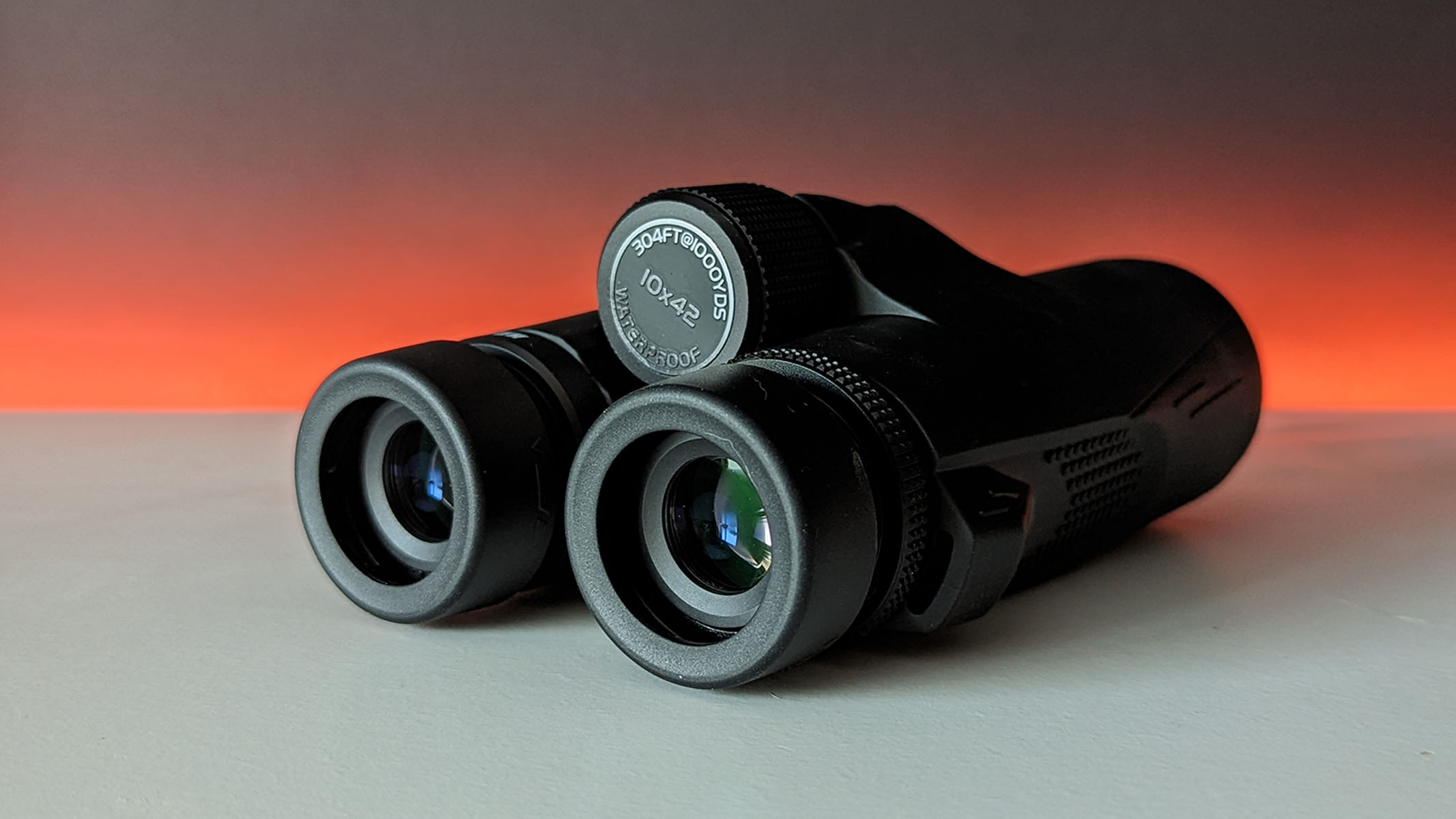
- Texturized controls makes it easy to use in the rain
- Clever design for the lens caps at this price
- Binocular rubber is surprisingly smooth all over, not great for grip
The SV47 binoculars certainly look the part. A solid matte black rubber finish protects the binocular body and optics and rubberized lens caps attach securely to both the objective and eye piece lenses. Textured, knurled plastic knobs to control the focus, diopter and to protect the binocular tripod mount make it easy to use in inclement weather without slipping. But we were surprised with the size of the neckstrap holders which seem to jut out from an otherwise slim design. It’s not a dealbreaker by any means but the two holders do appear a bit like wings on the binoculars.
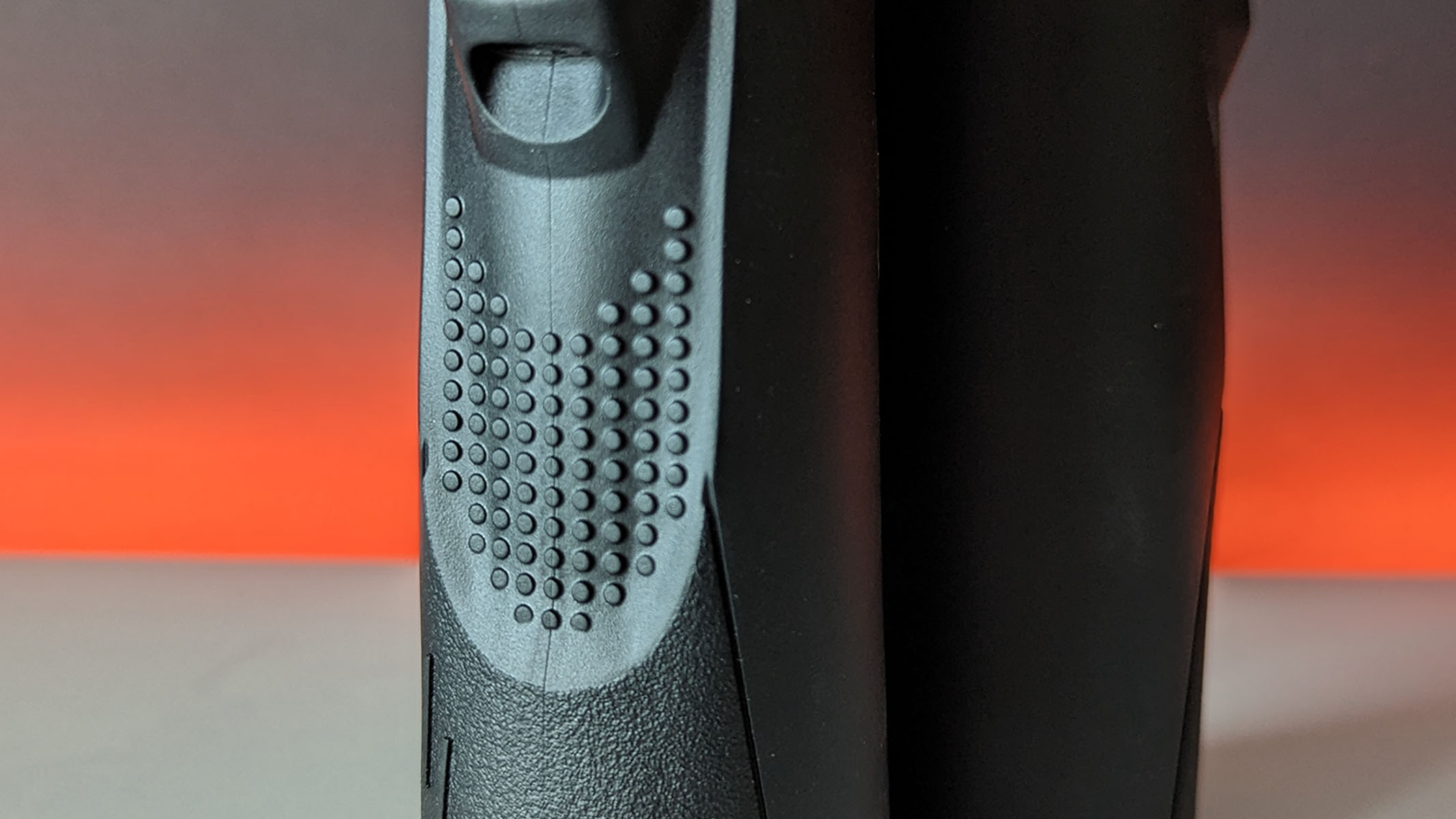
Texturized grips flank the sides of the SV47s and for good reason - the rubber armoring is otherwise actually quite smooth. Not so smooth that we would drop them every time we use them, but compared to other entry-level binoculars they lack the grip we might expect for binoculars of this size.
Objective lens caps can be held into place with the integrated rubber rings that slide over the front of each front element and secure them to the binocular. This is really helpful because it means they don’t get lost in a pocket or the carry bag when in use. The eyepiece lens caps come with a bridging connector that keeps the two caps tied together and also has an integrated holder for the neckstrap to avoid losing them when in use. Though, we noticed that the bridging connector has to face the right way round (bend towards the top of the binoculars as you use them) otherwise they squash together and spin around on the eyecups when the binoculars are folded together.
SVBONY SV47 10x42 binocular: Performance
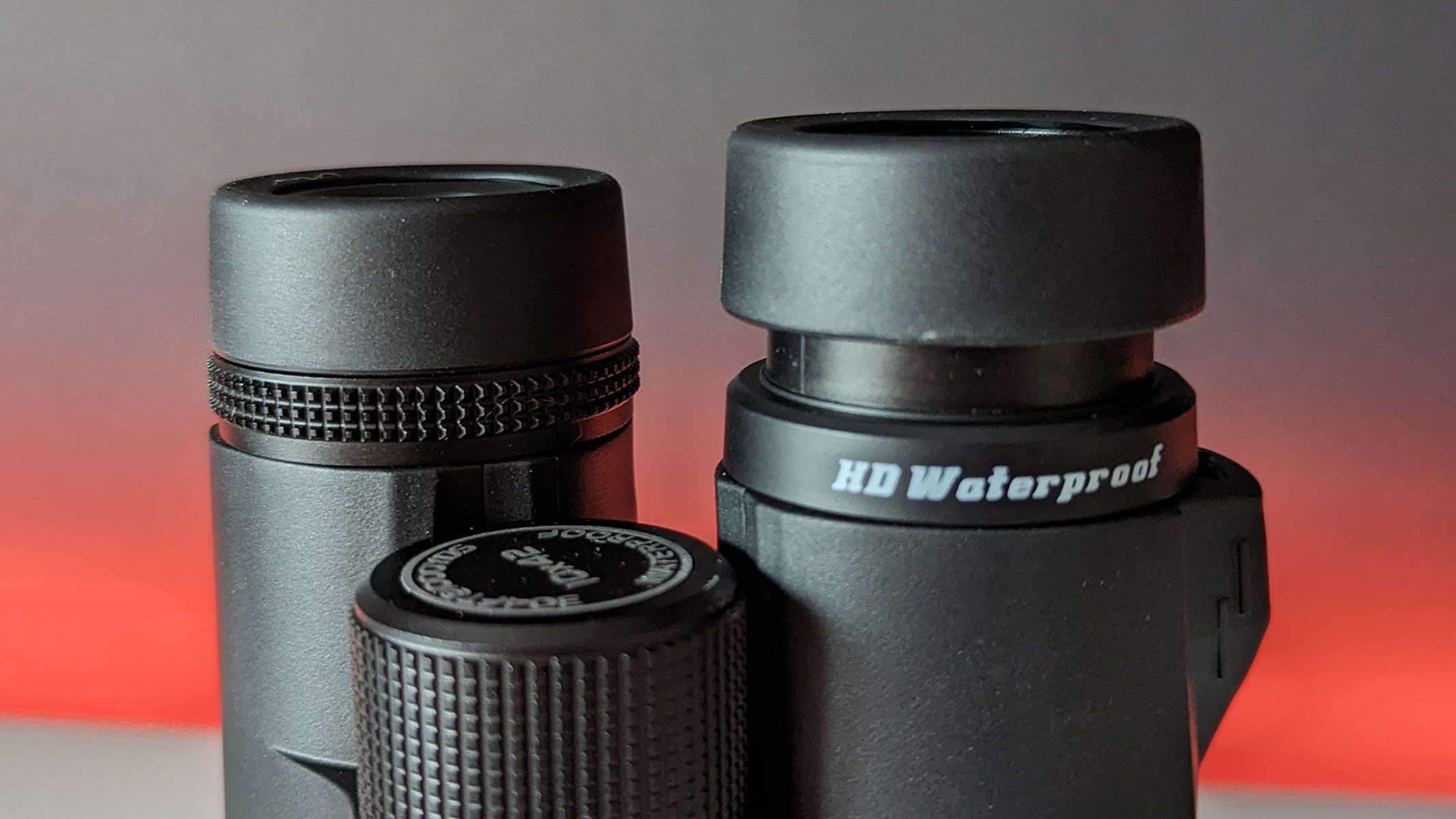
- Acceptable optics for a beginner binocular
- Chromatic aberrations visible and view is a little dark
- We expected more from BaK-4 glass
Performance-wise, the SV47 10x42 gives good views, optically for their intended demographic. A beginner will find them useful for basic observations in bird hides, out hunting or to see action in motorsports when at an event. Though it should be noted that for their 10x42 design we were left a little bit disappointed.
Right in the middle of the image circle the sharpness is acceptable but stray out towards the edges of that circle and things get soft quite quickly. While this isn’t an outright failure, it did mean that we spent quite a bit of time setting the diopter and refocusing back and forth when looking at subjects. It felt as if we weren’t quite able to get focus on our subjects, but after a while realized that it was simply the softness of the lenses, rather than operator error. This is surprising given that the binoculars are said to be constructed of BaK-4 glass (superior to the BK7 some budget binoculars are built with).
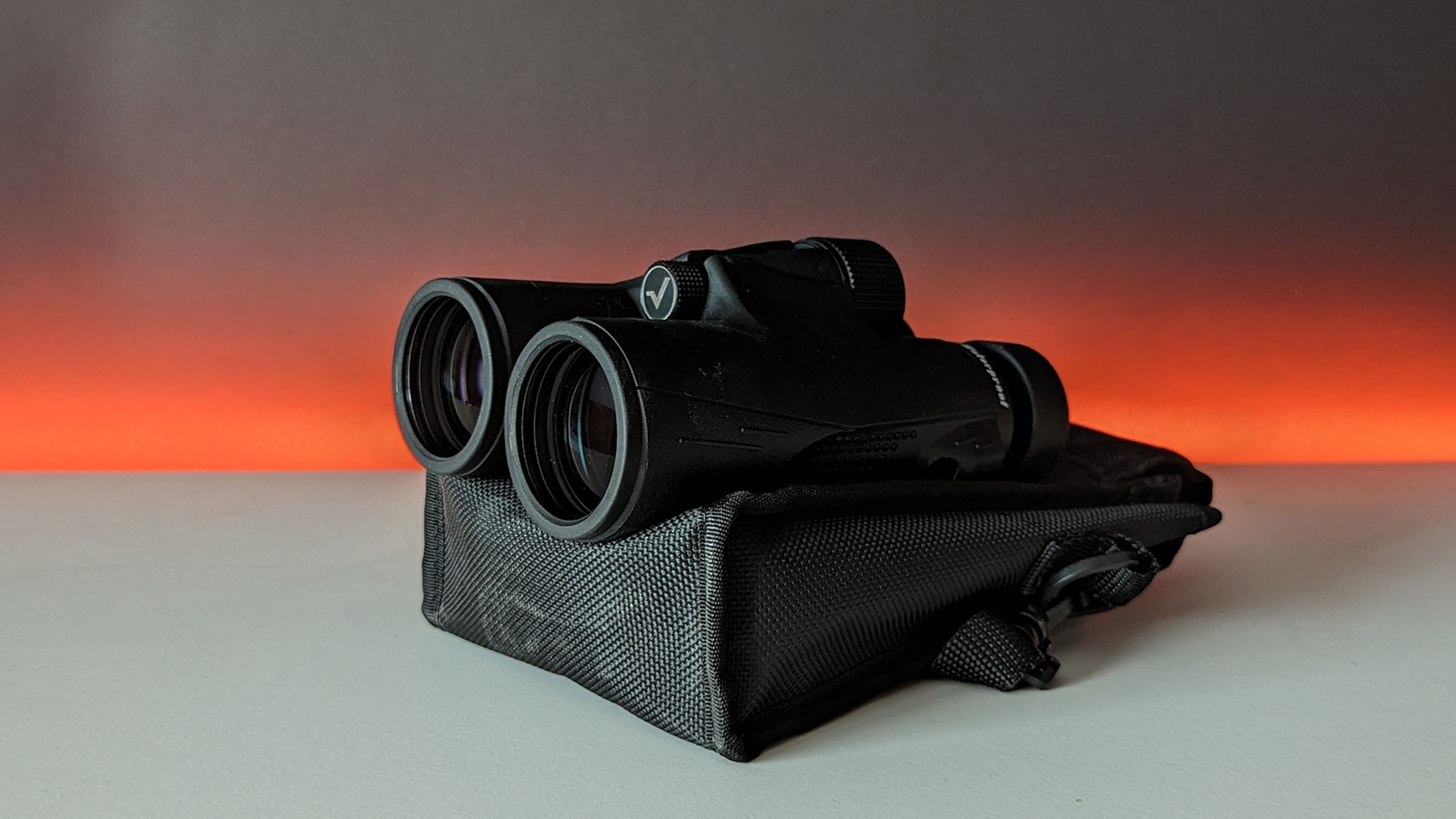
They’re a little dark for 42mm objectives, too. We think this may have something to do with the multi-layer coatings but aren’t yet able to confirm why they seem a little darker than other binoculars with the same aperture. This means they’re not suited for stargazing but hold up well in daylight hours (check out our guide to the best binoculars for stargazing for nighttime suitable alternatives).
SVBONY SV47 10x42 binocular: Functionality
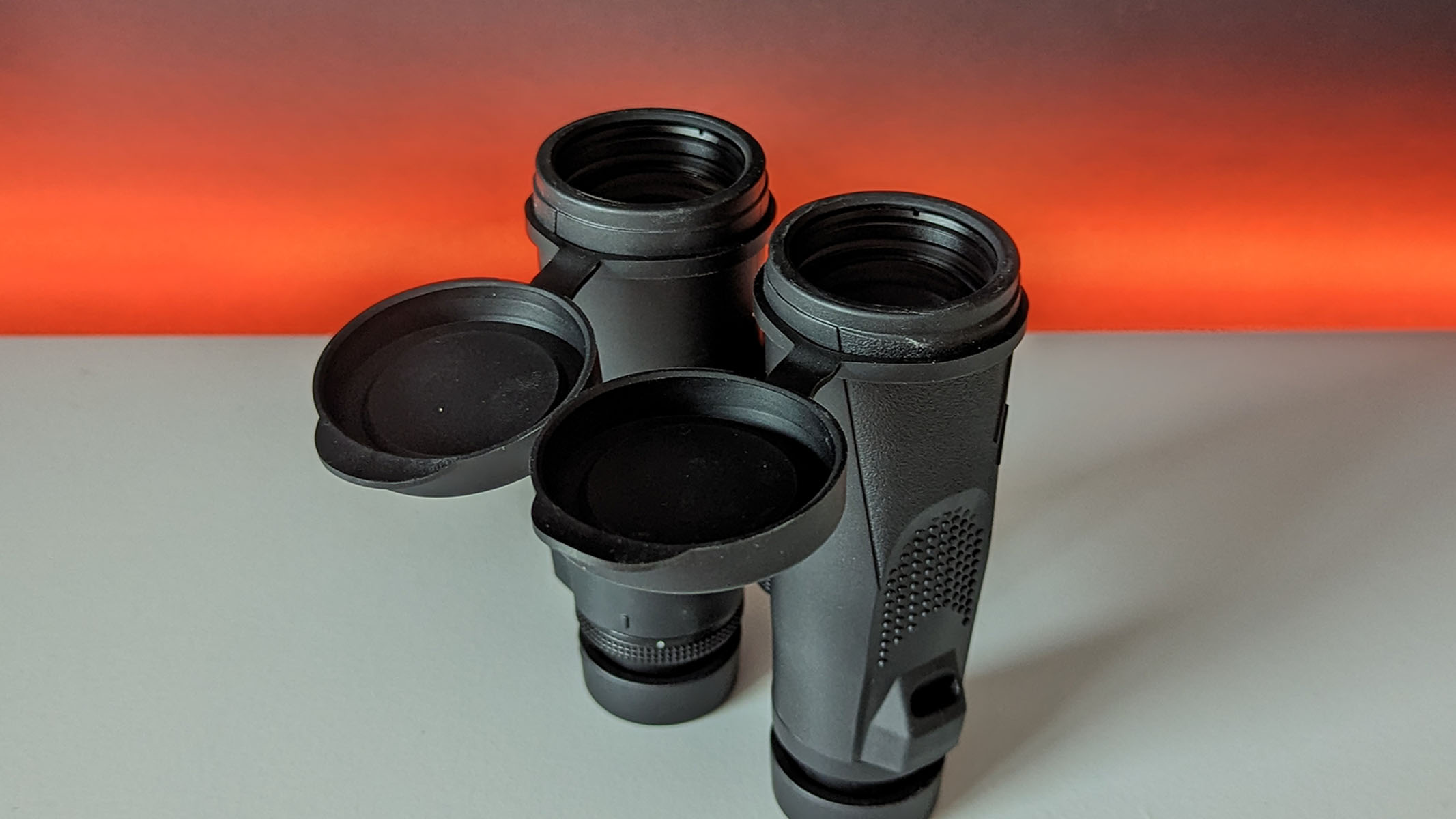
- Binocular hinge is a bit stiff
- Tripod adapter mount integrated into binocular
- IPX7 waterproofing is ideal
Using the SV47 10x42 binoculars is a doddle. Like any other roof prism binocular out there the binoculars have a large hinge in the middle of the device which can be levered to adjust for different ocular distances (the width between the eyes) but the hinge is evidently stiff compared with competitor models. It’s not unusable but younger children and those with grip issues may struggle a little.
The focus wheel is smooth and easy to adjust, as is the diopter ring. The tripod mount at the front has an attractive SVBONY logo which shines in the light and unscrews to reveal the quarter-inch screw thread where users would attach a binocular adapter for use on a tripod.
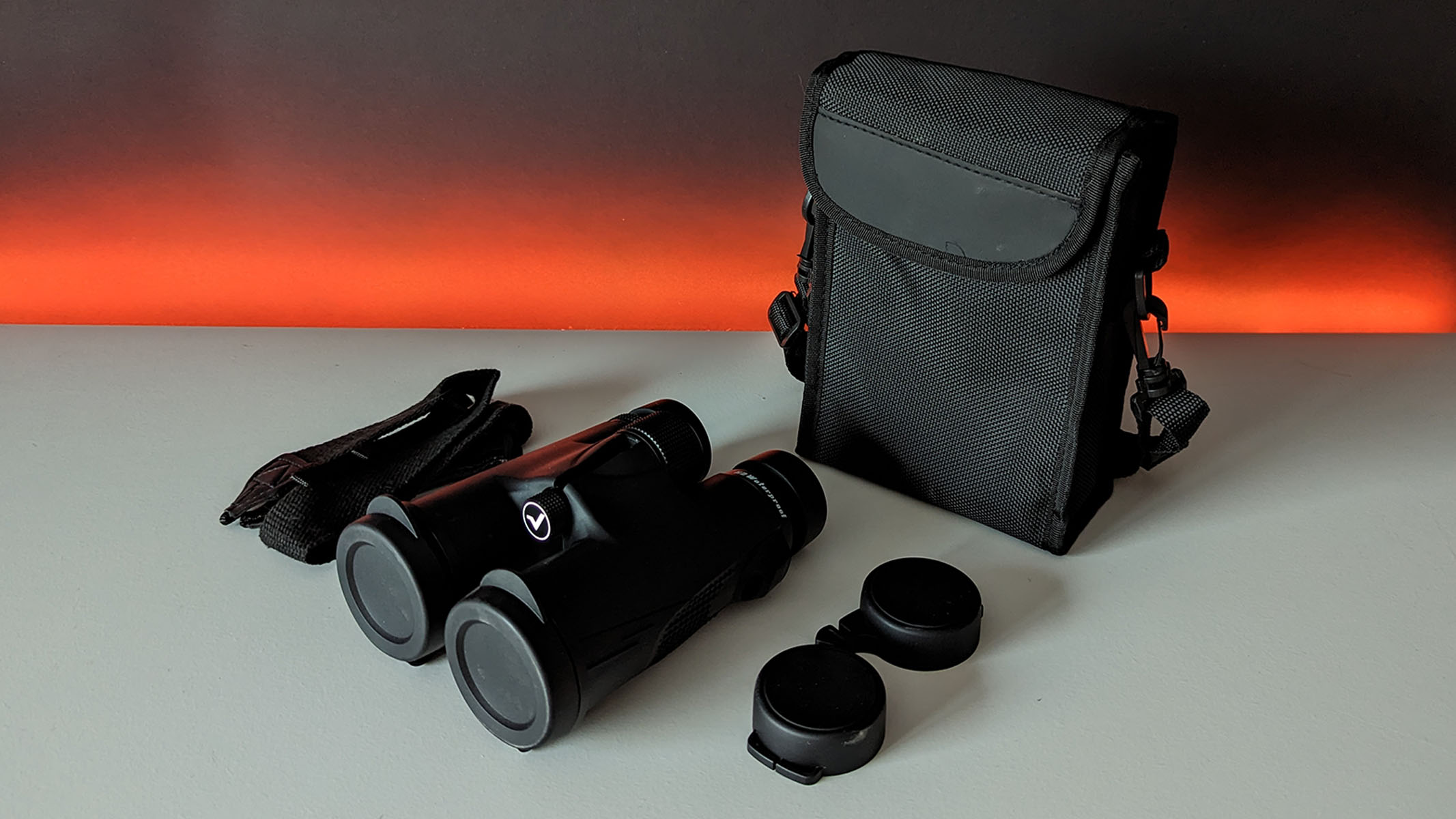
Something that really impressed us was the IPX7 waterproofness of the binoculars. The X denotes a lack of protection against debris and dust but the 7 shows that they can be held underwater for up to 30 minutes down to a depth of one meter. This is better than even more expensive binoculars from well-established brands. We didn’t test this aspect of the binocular though, so we can’t vouch for the manufacturer’s claim here, but if it’s to be believed then you should have no worries taking them out during a heavy downpour.
Should I buy the SVBONY SV47 10x42 binocular?
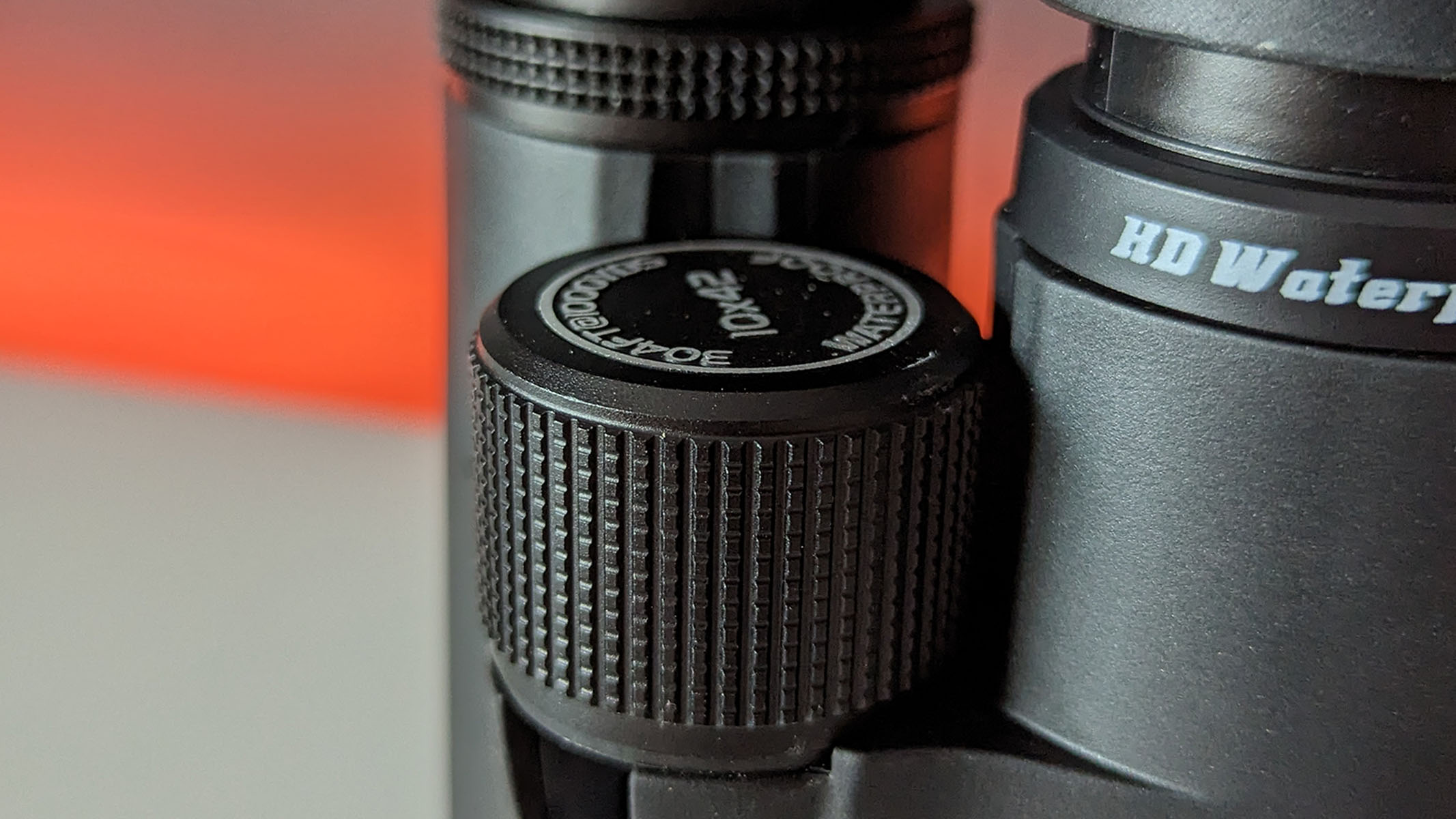
The SVBONY SV47 10x42 binoculars are good enough for the price, provided you can find them under $60. There are retailers which sell them for as much as $120 and we would advise against purchasing them at that price. There are better binoculars out there for that money.
But SVBONY sells them directly for around $50 and we think that’s reasonable considering the softness and a little darkness in the optics. They’re adequate for hobbyists, kids, and beginners but those who want good quality binoculars and perhaps need something for more professional purposes would need to look elsewhere.
If this product isn't for you
Another beginner binocular that we would recommend is the Nikon Prostaff P3. They have a better rubberized coating for protection, much more extensive eye relief which is ideal for spectacles wearers and a slimmer overall design making them much more pleasurable to travel with.
Got a lot of money to spend and want some of the best binoculars you can find? The Canon 10x42L IS WP is probably where you want to go. They have some of the best optics in the business and their in-built image stabilization system is an absolute game-changer. If you’re going to spend over $1000 on binoculars then stabilized binoculars like the Canon’s here are the way forward.
You may want superior optical clarity and better build quality than the SV47s though and have a little more budget to spend but don’t want to drop a lot of money on binoculars. For that, we’d turn to the Celestron Nature DX 12x56. 12x magnification brings you closer to far-away subjects and the 56mm objective lens diameters drink in more light so are better for low-light viewing and stargazing.
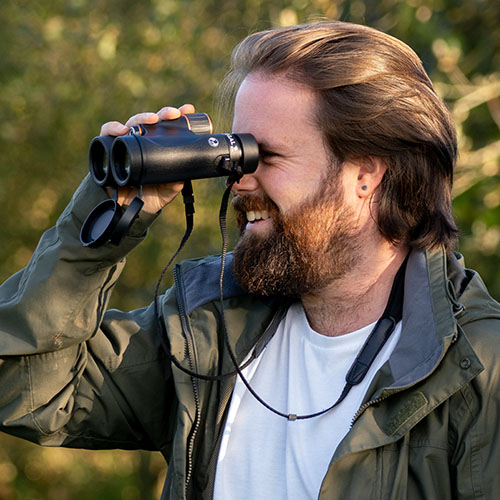
Jase Parnell-Brookes is the Managing Editor for e-commerce for Live Science and Space. Previously the Channel Editor for Cameras and Skywatching at Space, Jase has been an editor and contributing expert across a wide range of publications since 2010. Based in the UK, they are also an award-winning photographer and educator winning the Gold Prize award in the Nikon Photo Contest 2018/19 and named Digital Photographer of the Year in 2014. After completing their Master's degree in 2011 and qualifying as a teacher in 2012, Jase has spent the last two decades studying and working in photography and publishing in multiple areas, and specializes in low light optics and camera systems.
